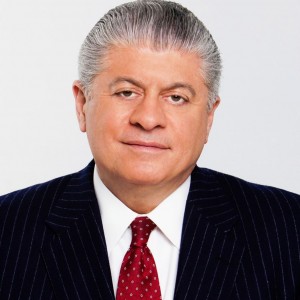Four members of the Proud Boys were recently convicted of sedition in federal court in Washington, D.C. Sedition is a conspiracy to overthrow the federal government by the use of force. The case stems from the events of Jan. 6, 2021, at the U.S. Capitol. During the trial, an FBI agent inadvertently admitted that she was asked to doctor and to destroy evidence, and that her colleagues have spied on defense lawyers in the case.
The Department of Justice has pursued the defendants in Jan. 6-related matters with extraordinary zeal. But the Proud Boys trial exceeded anything that has recently been revealed.
Here is the backstory.
A conspiracy is an agreement by two or more persons to commit a crime in which at least one of those who embraced the agreement took at least one step in furtherance of it.
Prosecutors love conspiracy cases because they are easy to prove. Yet, every standard definition of crime includes an element of harm. Since conspiracy is essentially a thought crime, the courts have dispensed with the element of harm. Stated differently, the government needs only to prove the existence of the agreement and the single step in furtherance of its consummation. The government need not prove harm and can claim itself as the victim.
There is never harm caused in conspiracy cases, as the so-called conspiracy does not succeed. If it did succeed, the government would charge the actual committed crime. Conspiracy is not the crime of attempt. Attempt requires that the defendants come just one material step short of completion. Attempt often does cause harm, as in an attempted murder in which the victim is shot by the defendant but survives.
Can a conspiracy exist that is impossible to succeed?
I have argued, and in my years as a judge in New Jersey I have ruled, that the answer to this is: No. If the conspirators concoct a plan that is impossible to pull off — like, four persons overthrowing the United States government by force — then there is no harm and the prosecution is exclusively for the employment of forbidden mental processes.
Yet, the right to think as you wish is a natural right and thus is immune from governmental reach. The natural rights of persons, which the Ninth Amendment requires that government not deny or disparage, means that there is no moral or legal basis for government punishment of thoughts. This includes, of course, all thoughts, even — especially — those that are negative about the government.
Paraphrasing the great trial lawyer Clarence Darrow, if a man steals $10, he won’t go to jail. But if two men agree to steal $10, and then don’t do it, they are candidates for prison. What kind of a country does this? Ours.
The attorneys for the Proud Boys lost this argument, as most courts presume the validity of the written law — even when it targets thoughts, even when it violates natural rights, even when the defendants have not harmed a hair on anyone’s head. And there are no crimes prosecuted more aggressively than those in which the government portrays itself as the victim.
Yet in this case, the government should be prosecuting its own.
During the trial, an FBI agent admitted under cross-examination that an FBI colleague asked her to alter evidence so as to remove the name of another FBI agent as having been present during a critical government meeting between agents and a confidential source. Materially altering government records, particularly those likely to be evidence in a criminal case, is a felony.
The same agent also revealed that her FBI superiors asked her to destroy 338 items of evidence. As if this were not enough, the same agent revealed that the FBI surveilled the communications between one of the defendants and his legal team. Since the latter was done without a search warrant, it, too, is a felony.
What’s going on here?
What we see here is not only the government breaking its own laws, but the manifestation of a culture in law enforcement that it needn’t abide the Constitution or laws or even societal norms when it engages in prosecutions or surveillance.
This attitude — law enforcement is free to break the laws it enforces in the name of a mythical national security — goes back to the weeks after 9/11 when then-President George W. Bush began his systematic shredding of the Constitution by unleashing federal agencies to spy on all Americans without warrants and the CIA to torture foreign persons in order to gain information about so-called threats to the nation.
Since no one in the federal government after 9/11 has been prosecuted for spying on all 330 million Americans whose phone calls and digital communications are systematically recorded without warrants or suspicion, nor prosecuted for torture, is it any wonder that a generation of federal agents has come of age lying, cheating, stealing and getting away with it?
On the torture front, I know of only one prosecution: that of a former CIA agent prosecuted for revealing torture and naming torturers.
The feds simply see no wrong in their own obstruction of justice. They don’t prosecute their own for behavior in contravention of the oaths they have sworn and in violation of the Constitution and federal criminal law they are morally and legally bound to uphold.
What happens when the government breaks its own laws and the lawbreakers go unpunished? It becomes a precedent and thus a basis for others in government to do the same. That precedent tramples human liberty and transforms those in government who do this into tyrants. How do tyrants decide whose rights to trample and whose to protect?
Which is more harmful to personal liberty — planning to harm the government and then not harming it, or agreeing to uphold the Constitution and then assaulting it? The answer is obvious.
To learn more about Judge Andrew Napolitano, visit https://JudgeNap.com.




